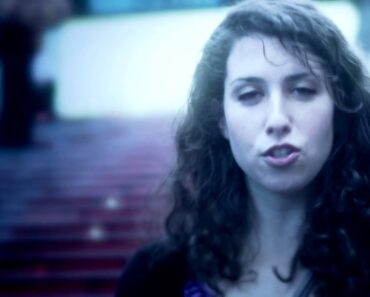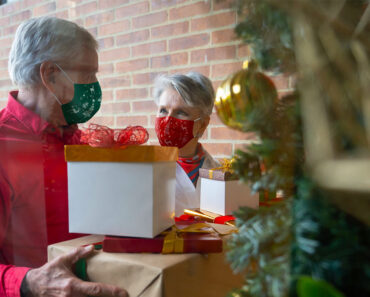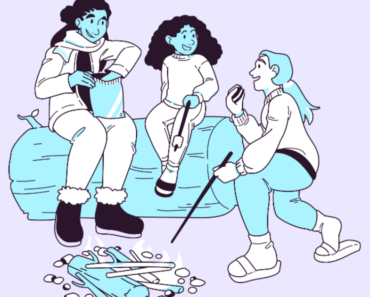Your baby learning to walk is an exciting milestone—they are, literally, taking steps toward a whole new way of life as a toddler (and a whole new way of life for you as a parent of a toddler!). And like many milestones, it comes with questions. Here’s what you need to know.
When do babies walk?
Parents often think babies should walk independently by 12 months, but anywhere between nine and 18 months is considered within the completely normal range, says Elizabeth Zahary, a paediatric physiotherapist in Edmonton.
Carl Cummings, a paediatrician in Montreal, agrees. “In my practice, the average age for walking alone is 13 or 14 months,” he says.
And don’t worry if your baby takes a few steps one day, but crawls again the next. There’s no perfect timeline between a baby’s first steps and walking independently.
“You need to have hundreds and hundreds of supported steps, holding someone’s hand or a piece of furniture, before you’re able to walk unsupported,” says Zahari. It can take several months.
How do babies learn to walk?
It requires strength, coordination and balance for babies to learn to walk, and these are complex skills that require lots of building blocks. Tummy time is an important piece here, says Zahary, because it helps babies extend and strengthen their core, arm and leg muscles. Practicing tummy time from birth will help them sit, crawl, cruise and, ultimately, stand.
Growth affects balance, too. “Babies are top-heavy, so their centre of gravity is just under their armpits as infants,” says Zahary. “As they grow, their centre of gravity moves to their hips and pelvis, which allows them to develop balance.”
Neuromotor skills (how the brain and body work together) need to develop as well so that your baby can coordinate taking their first steps. “When all those systems mature, they’ll be ready to walk,” says Zahary.
Another factor that can be pretty important is a child’s temperament, says Zahary. “Kids who are naturally more cautious tend to be a little slower to walk because they feel very safe crawling, and standing up makes them feel insecure,” she says.
Stages of learning how to walk
A number of developmental milestones usually precede your baby’s first steps, including pulling to stand and cruising.
Pulling to stand:
Between nine and 11 months, your baby may start trying to pull their body up to a standing position by holding onto something, such as a sofa or crib.
Cruising:
From 10 to 12 months, your baby may start cruising, which means they will stand up and hold onto a piece of furniture while they take a few steps.
Standing and walking:
Between 12 and 14 months, they may start to squat down and stand back up again. At this point, they may take a step or two when you hold them upright and gradually (or quickly, depending on the kid!) start walking on their own.
How can I help my baby walk?
“The basic developmental mantra is ability and opportunity,” says Cummings. “They’re not going to walk until they have the ability, but they need the opportunity.” Hold their hands while they’re standing and give some loving encouragement.
You can encourage your baby to walk by placing the furniture so that your baby can hold onto one piece and move to another without obstacles in the way, or by putting toys on the couch rather than on the floor so that they pull themselves up to standing.
Activity centres that encourage standing to play, such as water tables, play kitchens and workbenches, are another good idea, says Zahary. A push toy that allows them to hold on while they walk, such as a play cart or lawnmower, also helps kids who are close to walking on their own get the hang of it (just make sure it’s used under supervision and away from stairs!).
Should my baby use a walker?
Baby walkers that babies stand in and use their feet to push around have been banned in Canada since 2004 because they have led to many injuries. Plus, they don’t actually help babies learn to walk because they don’t allow them to practice all of the balance and strength skills they need for independent walking, say experts.
Should my baby wear shoes when learning to walk?
Shoes don’t help babies learn to walk, says Cummings. Rather, your baby can go barefoot or wear non-slip socks or slippers around the house. When you are outside and need to protect those sweet feet, choose footwear that’s the right size, with flexible rubber soles for proper support.
Signs my baby will walk soon
After mastering crawling and scooting (sliding around on their bottom), walking will soon follow. Once your baby begins pulling themselves up on furniture and taking a few steps, which is known as cruising, they are well on their way to taking their first solo steps. Other signs to watch for include better balance when your baby is standing, and walking confidently with a push toy.
Should I call the doctor if my baby is a late walker?
When it comes to baby milestones, it’s natural to compare your little one to other kids their age. But it’s a much better idea to check with your doctor, who can evaluate your child’s overall development, which includes gross and fine motor skills, language and socialization. It’s generally about context, says Cummings.
If your child is 12 months old and shows no interest in crawling or pulling themselves up, the doctor may want to investigate. On the other hand, if a child is 15 months old and not walking alone yet but has met other milestones for crawling and cruising, it’s usually not a cause for concern.
Your doctor may refer you to a physiotherapist, particularly if your baby is getting close to 18 months. The physiotherapist may check for a variety of things, including decreased flexibility on one side of the body, which could be a sign of orthopaedic or neurological issues. It could be something as simple as your child has a bigger-than-average head, which means it might take them a bit longer to find their balance.
“Every once in a while, I’ll see a child who raises some concerns, but mostly it’s about providing reassurance to parents and giving strategies to encourage movement,” says Zahary.
About our experts: Elizabeth Zahary is a paediatric physiotherapist at Summerside Children’s and Sport Physiotherapy in Edmonton. Carl Cummings is a Montreal-based paediatrician.

































